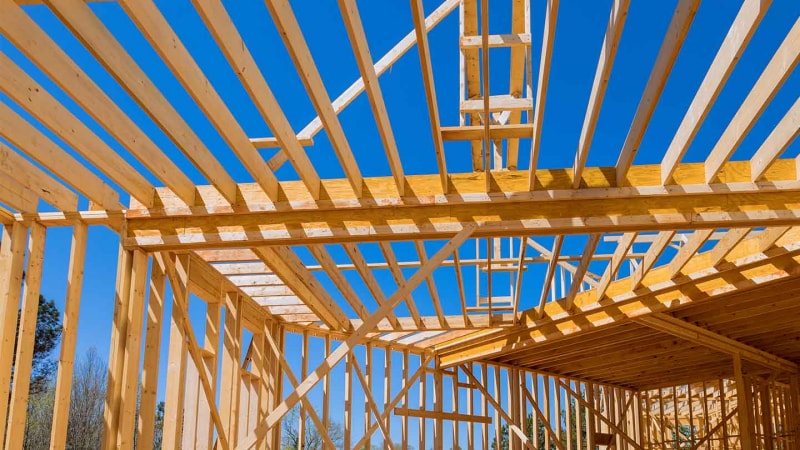Primary, secondary and investment properties: What are the differences?

There are three types of properties homeowners can get a loan for: primary, secondary and investment properties. While you may not be looking to buy a second home or investment property now, it could be an option in the future.
Learning what each property type is, and how they differ from one another, can help you understand which loan you need to apply for.
Differences between primary, secondary, and investment properties
While they are all properties and you can get a loan for any of them, primary, secondary and investment properties differ slightly in terms of considerations. Mortgage rates, risk and tenants are all different for each property type.
Primary property
- Mortgage rates: Typically lower than for second homes and investment properties.
- Tenants: The homeowner must be the primary occupant.
Secondary property
- Mortgage rates: May be similar or slightly higher than a primary property.
- Tenants: Generally not allowed outside of limited circumstances.
Investment property
- Mortgage rates: Generally higher than primary and secondary residences.
- Tenants: Allowed.
What is a primary property?
A primary property is a home you'll use as your primary residence. When you apply for a mortgage on a primary property or residence, you’re confirming you’ll be living there.
Lenders may feel more confident lending to buyers who are using their home as a primary residence since they will be working directly with the people who are going to be living in, and caring for, the home.
What is a secondary property?
A secondary property, also known as a second or vacation home, is a term used for a home that you only occupy part-time over the course of the year. A common type of secondary property might be a vacation home.
Lenders may have stricter requirements for mortgages on a secondary residence. This property type is a riskier investment because it will be vacant for part of the year.
It's important to disclose if a home will be your primary or secondary residence on a mortgage application.
What is an investment property?
An investment property is a property that's being purchased with the goal of generating rental income. Banks see these investments as having a reasonable amount of risk so they are less likely to lend to investors.
When mortgages are available to investors, they likely have higher interest rates and stricter credit requirements.
FAQs: primary, secondary, and investment properties
Following are answers to some frequently asked questions about primary, secondary and investment properties.
How can I apply for a mortgage?
When applying for a mortgage for a primary residence, second home or investment property, here are some common steps:
- Gather information about your financial situation: You'll need information around your employment, income and expenses.
- Understand basic loan requirements: This includes knowing your debt-to-income ratio, credit score and verifying the value of your assets.
- Choose your mortgage type: There are many mortgage types to choose from. Choosing the right mortgage means understanding what is available based on your needs.
- Choose a mortgage lender and apply: When you first start looking for mortgages, you may see offers from lots of lenders. Compare rates and services before choosing the one that’s right for you.
Choose a mortgage lender and apply: When you first start looking for mortgages, you may see offers from lots of lenders. Compare rates and services before choosing the one that's right for you.
What kind of loan can I get on a primary property?
You could be eligible for many types of mortgage loans on a primary property. This will depend on your individual needs and qualifications. Types of mortgage loans include:
- 30-year and 15-year fixed-rate loans
These are mortgages where the interest rate is consistent and the principal and interest payment stay the same over the life of the loan. - Adjustable-Rate Mortgage
This is a loan where the initial interest rate is consistent for a period of time, then adjusts at regular intervals. - FHA loan
FHA loans may be ideal for people with lower credit scores and who are looking for a loan with a lower down payment. - VA loan
VA loans offer low or no down payment options for active-duty service members and veterans.
What kind of loan can I get on a secondary property?
Depending on your financial situation there may be a few options to finance a second home. Mortgage options include:
- Conventional loan
Same as with the primary property you can use a fixed or adjustable-rate mortgage on the second home. - Cash-out Refinance
A cash-out refinance replaces your current mortgage and borrows against the equity in your primary property. You can use the extra money as cash towards a down payment on your second home.
What kind of loan can I get on an investment property?
If you have a sizable down payment and a good credit score, you may qualify for a conventional loan.
Another option could be applying for a home equity line of credit on an existing home to pay for all or part of the property.
Which loan should I apply for?
The process is pretty much the same whether applying for a primary, secondary or investment property loan. However, the type of loan you're eligible for might be different. Talk to one of our Home Lending Advisors if you need more guidance on how loans for different property types work.



